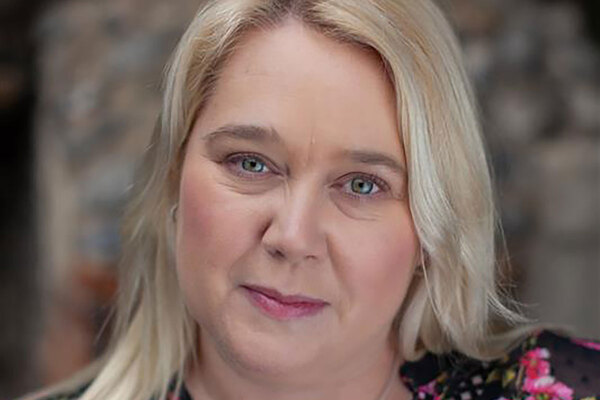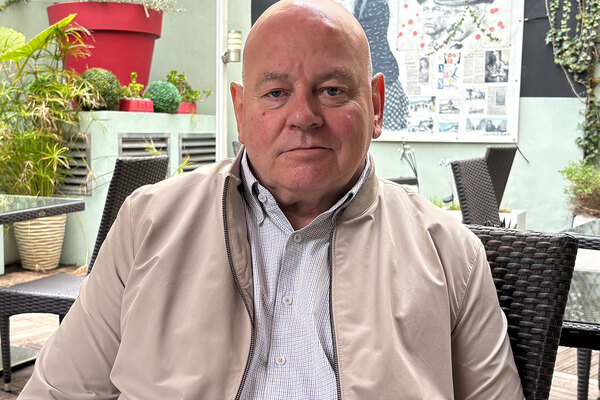Dispatches from the Labour Party Conference 2024
Over a mostly grey and wet few days, the Labour Party descended on Liverpool to host its annual conference. Stephen Delahunty, Katharine Swindells and James Riding round up the key takeaways for the sector

It should have been a celebration party. But in the hustle and bustle of the main conference area, it often felt like any optimism that had come with Labour’s first 100 or so days in office was being sucked out of the room.
Markedly busier than when not in government, TV and radio broadcasters could be seen still doggedly pursuing senior Labour figures over their gifts and expenses, as senior executives and delegates queued around the edge of the main hall for refreshments.
The row over donations is the kind of sleaze the party had promised to root out when it was in opposition and was at risk of overshadowing any positive announcements.
For the housing sector, there was still mostly election campaign rhetoric, with small hints at what might come in next month’s Autumn Statement.
Inside Housing has rounded up the key takeaways from our time in Liverpool.
What will a new remediation plan mean for social housing?
The deputy prime minister had spent the morning before her opening address promising a “fairer” Right to Buy and arguing that donations were necessary because of the expense of running for office.
During her speech, Angela Rayner, also the housing secretary, reiterated the rest of her party’s key reforms which it hopes will protect renters and deliver more new homes.
She added: “Working with the prime minister on the Grenfell Inquiry was the most sobering moment of my career: 72 lives lost, 18 children, all avoidable. A fatal failure of market and state. A tragedy that must never happen again.
“It is completely unacceptable that we have thousands of buildings still wrapped in unsafe cladding seven years after Grenfell.
“And that’s why we will bring forward a new remediation action plan this autumn to speed up the process and we’ll pursue those responsible – without fear or favour. This must lead to new, safer social housing for the future.”
Her announcement comes after it was revealed that funding is not available to fix fire safety issues that go beyond cladding for towers which are solely for social housing tenants.
Although details of the new remediation plan have yet to be published.
Exemption from the local connection test
Given the furore around donations, it was not surprising to see reports that Sir Keir Starmer had deleted a promise to ban MPs’ second jobs from his conference speech.
However, the prime minister did promise to house all veterans, young care leavers and victims of domestic abuse, and introduce a duty of candour law to parliament before April next year.
In his keynote address to the Labour Party Conference on Tuesday, he said: “Homes will be there for heroes. “They will have the security they deserve. They will have a roof over their head because Britain belongs to them.”
He also pledged to introduce a legal duty of candour on public bodies. The Hillsborough Law will be introduced in parliament before the next anniversary of the 1989 football stadium tragedy. This is a commitment Sir Keir originally made during a speech in Liverpool two years ago.
After the prime minister had finished speaking, the government revealed plans for prioritising veterans, care leavers and domestic abuse survivors for social housing by exempting them for the local connection or residency test.
Will the sector welcome the return of mandatory council representation on housing association boards?
Not content with the Hillsborough Law announcement, Andy Burnham called for a ‘Grenfell law’ to enshrine the right to housing and for the return of mandatory council representation on housing association boards.
The mayor of Greater Manchester said the government’s commitment to the Hillsborough Law to prevent public inquiry cover-ups was “momentous”.
“Let’s now build the same campaign as we built for the Hillsborough Law around the Grenfell Law,” he added. “Imagine a housing-first philosophy… a Grenfell Law that enshrines in UK law the right of all UK citizens to live in a good, safe, secure home.”
Mr Burnham also said he wants to see the return of the ‘golden share’ policy, in which councillors are guaranteed representation on local housing association boards.
The measure was introduced in the 2000s when many councils were encouraged to transfer their homes to housing providers, but it was scrapped by the Conservative government in 2017.
Social rent or shared ownership?
The former chair of the Levelling Up, Housing and Communities (LUHC) Committee said grant could be switched from shared ownership to social rent and that he is “sceptical” about the future of the product as a part of the government’s affordable housing plans.
Clive Betts, MP for Sheffield South East, who oversaw the committee when it published a report into shared ownership, said: “I’m sceptical it’s the best way. We did our report on shared ownership – very few people staircase at all, there’s a lot of discontent with conditions.”
The report, published in March, found that shared ownership has “failed to deliver” and needs “urgent reform" after an inquiry found uncapped service charges, rising rents and unfair maintenance costs mean it is unaffordable.
Mr Betts told Inside Housing: “You can build shared ownership properties without necessarily having a lot of social housing grant going into it.”
At a separate panel on shared ownership late on the last day of conference, the panel was asked what would be the impact if grant was diverted in this way. One housing association chief executive said it could dent their development plans by a smooch as two-thirds.
The government is yet to respond to the findings of the LUHC Committee’s report.
At the same time, a Labour MP told attendees at the conference to “keep pushing” the government on the 90,000-home annual social rent target.
Dan Tomlinson, MP for Chipping Barnet, was speaking as part of a panel discussion organised in partnership with the Chartered Institute of Housing on the topic of housing as a driver for growth across the economy.
Mr Tomlinson has been selected as one of Labour’s national mission champions for growth, with the aim of helping his party deliver the ‘five missions to rebuild Britain’ they set out in their manifesto.
In response to a question from Shelter, he said: “I know the government needs to build more social homes, alongside unleashing our planning reforms, and getting back to housebuilding obviously.
“But I know that this is something that many MPs care about so I would say keep pushing, because it has been incredibly important in my own life.”
New for-profit providers and a focus on joint ventures
At an Inside Housing fringe event at the conference, the chief investment officer at Hyde revealed that the South East housing association is in discussions for three new for-profit partnerships.
Guy Slocombe told delegates that the plans included “three new investors”, but he stopped short of revealing their identity.
Much of the talk at the event was about how to drive funding into the sector and around the impact of the government’s rent plans.
Chancellor Rachel Reeves is reportedly planning to introduce a 10-year rent settlement for social landlords in the next Budget on 30 October.
Ms Reeves intends to increase annual rents in England by the Consumer Price Index measure of inflation – which currently stands at 2.2% – plus an extra 1%.
The settlement aims to encourage the building of affordable homes by providing certainty over cashflow to housing associations and councils. However, one Northern chief executive told Inside Housing that it may not provide the headroom the sector needs as many business plans will have priced that rate in already.
Following that session, Tom Copley, deputy London mayor for housing and residential development, set out why the City Hall developer will initially focus on joint ventures and land assembly.
We need 3,000 new planners
At a panel session on planning on Monday, Chris Curtis, newly elected MP for Milton Keynes North, sought to reassure the housing sector that “we’re not going to lose a by-election, panic and completely throw out the important planning reforms that this country needs”.
“I’m from that generation where we’ve been really screwed by the housing crisis,” he said. “It’s so important that we get this right and we’re determined to do so.”
Elsewhere on the panel, Lindsey Richards, president of the Royal Town Planning Institute, pushed back on the idea that the planning system was broken. “We’re not a blocker, we’re an enabler,” she said.
Ms Richards welcomed the government’s pledge to recruit 300 new planners, but stated that “we want a zero on the end of it”.
Fellow panellists including Islington councillor Shreya Nanda and Andrew Taylor, group planning director at Vistry, supported the announcement of new brownfield ‘planning passports’. While Mark Washer, chief executive of SNG, cautioned that the scheme could create pockets of urban extensions and neglect town centres.
Mudslinging and microgrids
Corporate mudslinging was the highlight of Monday’s panel on ’microgrids’, which house builders can use to electrify their developments. SNRG, the company that organised the panel, came under fire for attacking a rival energy firm in its leaflets.
“Is the only way you’re able to sell your product [is] by making smears about other people,” asked audience member Clem Cowton, director of external affairs at Octopus Energy, who was incensed by SNRG’s claim that “allegedly, ‘zero bill’ homes command a 16% price premium”.
The rattled hosts eventually defused the situation by saying “we need a multitude of solutions” to the net zero challenge.
Other than this, the discussion was good-tempered. Sarwjit Sambhi, chief executive of St Modwen, said microgrids will reduce the cost of moving to a net zero energy network and David Adams, strategic advisor at the Future Homes Hub, suggested that microgrids could be used to stagger residents’ heat pump usage so they do not all come on at the same time.
Microgrids are “not a panacea”, but “there is a lot to win” from them, Mr Adams added.
A rebrand for retrofit
The Department for Energy Security and Net Zero announced a new council retrofit scheme and Wave 3 of rebranded Social Housing Decarbonisation Fund (SHDF) following Ed Miliband’s speech at the conference.
The third wave of the SHDF and local authority retrofit scheme will be opening for applications shortly.
Both schemes, respectively renamed Warm Homes: Social Housing Fund and Warm Homes: Local Grant, will provide funding to registered providers and councils to tackle fuel poverty and improve the energy efficiency of their homes.
In a change to the bidding process from earlier waves of the SHDF, all applications that meet the minimum requirements of the new scheme will be awarded funding.
Mr Milliband, energy security and net zero secretary, told delegates: “Decent standards for private rented homes. Warmer homes, lower bills. That’s the difference a Labour government makes.”
At the conference, it felt like the Labour Party is still mostly running on vibes – but not all of them great. To really get a sense of the difference Mr Miliband hopes his party will make, the devil will be in the detail.
For that, the sector will have to wait until the next Budget on 30 October.
Sign up for our daily newsletter
Already have an account? Click here to manage your newsletters
Housing 2025 Leadership Symposium
At the Housing 2025 Leadership Symposium, we are committed to raising the voice of the housing sector and creating new homes and thriving communities. We believe that the solutions to today’s housing crisis lie in innovative partnerships, sustainable practices, and inclusive policies.
Together, we can build a future where high-quality, accessible, and affordable housing is a reality for all.












